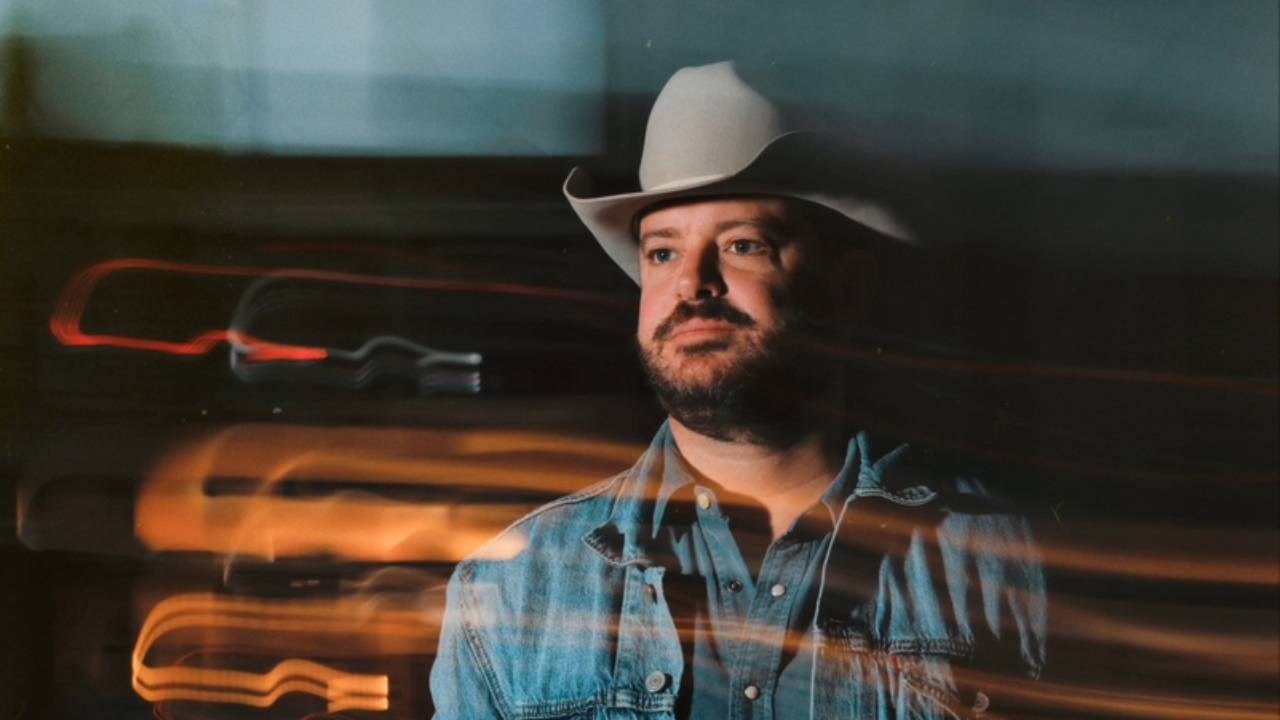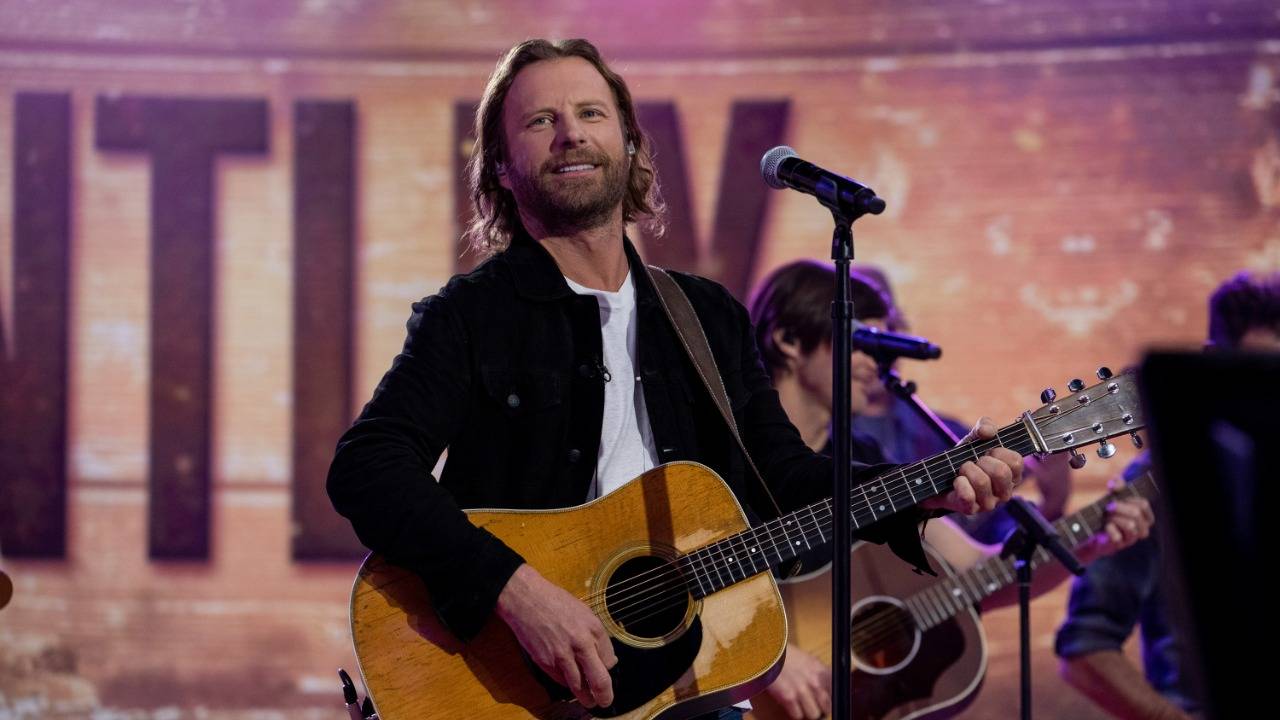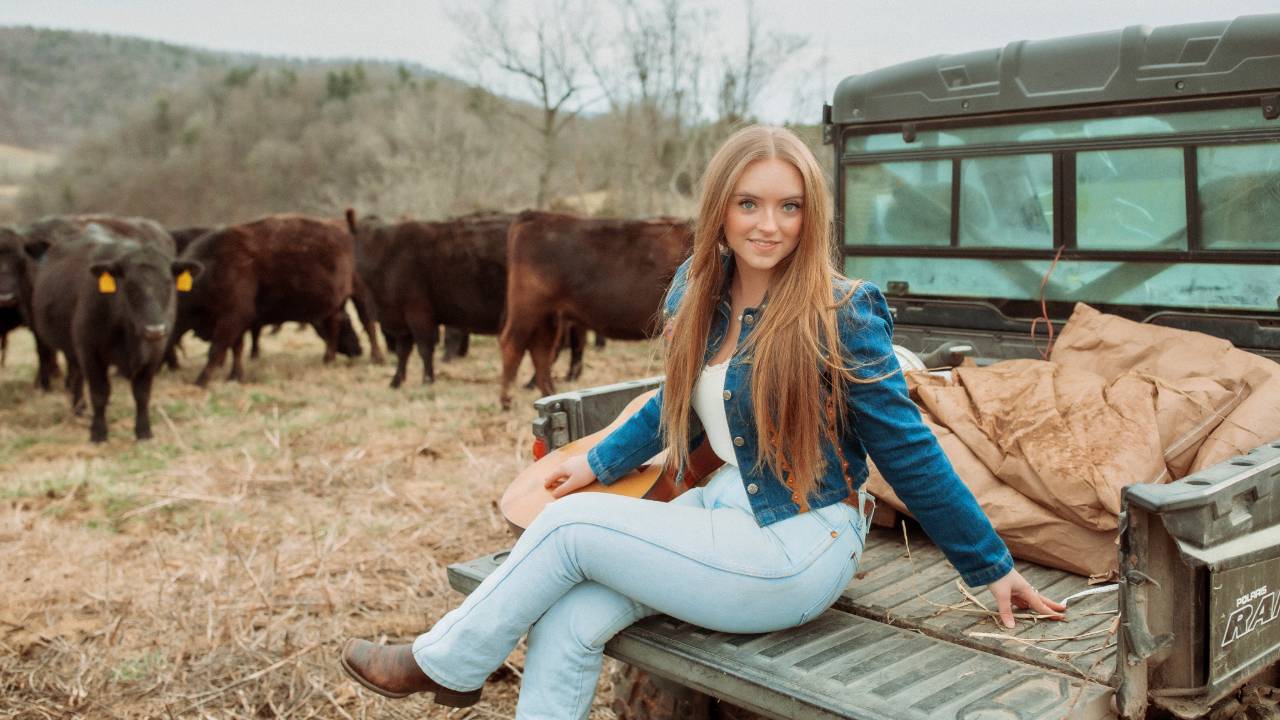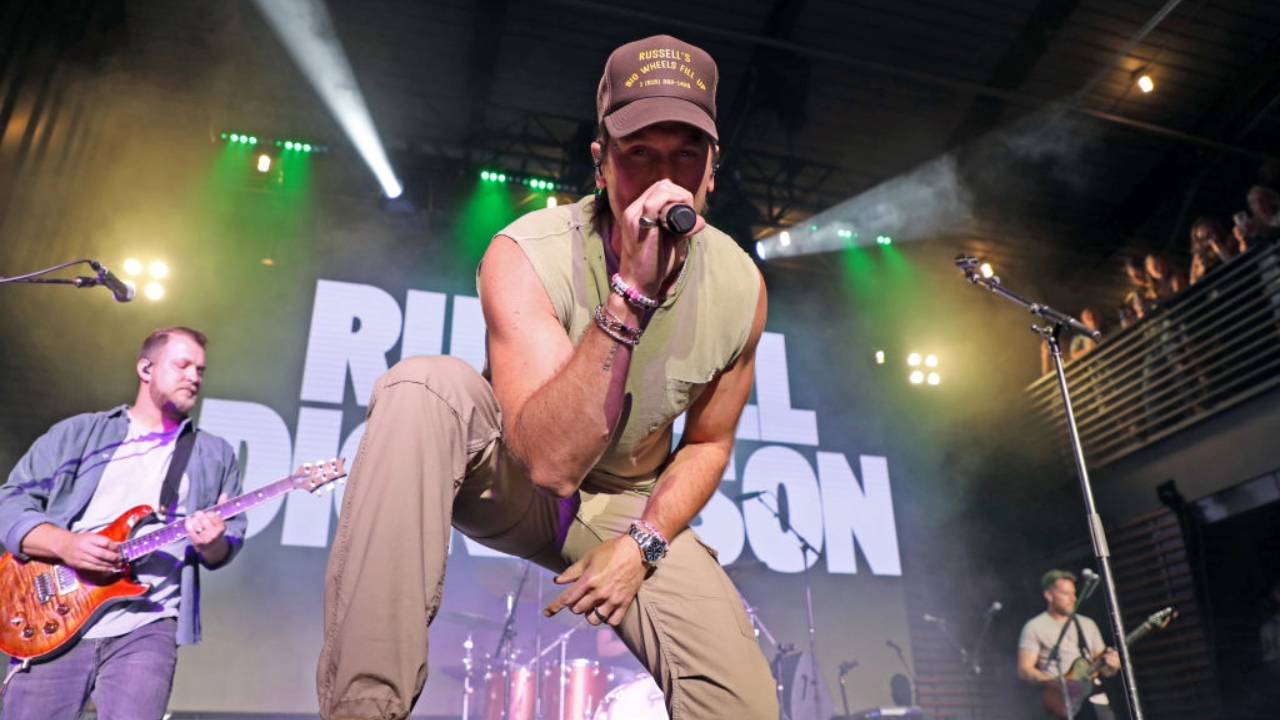Reba Reminisces About Her Early Years
A gifted entertainer and a keen businesswoman, Reba McEntire remains one of Nashville's most recognizable personalities and a role model to countless women in country music. Her most recent acclaim comes from the new CMT special, What's Your 20? 20 Greatest Women, 20 Years, which wrapped up with McEntire entrenched at the top of the fan-voted list. In this exclusive interview with the show's producers, the upbeat Oklahoma native talks about her earliest performances, the influence of her parents and the secret to choosing her material.
CMT: How did your mom and dad guide you toward a music career?
McEntire: Mom and Daddy were very influential over all four of us kids -- encouraging us, keeping us busy. That's the way we stayed out of trouble. We were always working on the ranch, rodeoing, having a fun time. When they released us from our chores, we hit the roping pen. We played down there until it was too dark to see or mama hollered for us to come home for dinner. They were always encouraging us to follow our dreams, but don't stay too long. And my dream at the time, when I was younger, was to be a world-champion barrel racer.
Daddy would just point-blank tell me, "Reba, I don't know why you want to do something you're not good at." And I said, "Well, that was hurtful." But it was true. It was very honest. And I would say, "Well, what do you think I ought to be doing?" And he said, "Sing. You ought to be singing." But, see, my problem was, I couldn't practice singing, but I could go practice running barrels. That was fun. And keeping a horse in shape -- that was fun.
So Mom and Daddy were always encouraging us to do better and to give your 100 percent of everything that you had. Try hard. And they were great role models. Daddy was world-champion steer roper three years. Grandpap was a world-champion steer roper. So we had champions in our family, and I consider my mama a champion for just putting up with all four of us kids. She had four kids in five years. Good lands, that was enough to make anybody pull their hair out. But they encouraged us to do what we can, the best we can, and to stay at it -- but try to find something you like to do to make a living. And all of us have done that.
When did you realize you could sing?
The time when I thought I had something different is when I wasn't getting in trouble for talking or singing. When I was going to sing, everybody stopped playing dominos or whatever and would listen. I thought that was quite unusual because usually when I walked in a room and I had something to say, everybody was like, "Get out of the room. Go back in yonder and play or go outside." 'Cause I was the third or fourth kid. I wasn't the oldest or the youngest. I wasn't the only boy, and I was usually in the way. And I was mischievous. I was always into something. So when I got good attention from the singing, I knew that was probably where I needed to land.
You started singing at rodeos. Is that where you actually started singing in front of crowds?
No, I started singing when I was little bitty. When I was in the first grade, when they would say, "Who would like to sing a solo at the Christmas program?" I raised my hand. In second grade, I was singing at the graduation, a song called "He." But the first grade was my first time behind a microphone when I sang "Away in a Manger" for the Christmas program.
Every year, it was whatever kind of program they were having, up until the fifth grade when I got into 4-H club. I was doing the individual act for 4-H club, Share the Fun. When we got in junior high, Mama and Clark Ryan, our art teacher, had the idea to form a band. Not a marching band but a country-western band because there were a lot of kids in school that had the talent. Roger Wills, who is the bandleader and bass player for Alan Jackson, was part of that, and Pake (McEntire's brother), Susie (her sister), myself and a bunch of other kids. We would play functions at school, but also we would borrow the equipment, the sound system, and we would go play clubs on weekends. And we'd get in late, late, late at night and we'd put it all back where we needed to. Mama was driving us and she went with us to every club. We played 9 to 1 for our show money. Then if there was enough people wanting to hang around, we'd play from 1 to 3 and just pass the hat. So I've been in front of audiences a long time.
Let's talk about Red Steagall bringing you to Nashville and helping get a record deal.
Well, Daddy stepped in again when I was in college. I was having me a big time. I loved college. I loved school. Anything besides having to work on the ranch, I was for that. I would go to the National Finals Rodeo every year with a bunch of my friends down in college. We had a great time. Daddy said, "Instead of going up there having a good time, why don't you go get you a job?" I said "Doing what?" And he said, "Singing the national anthem." Well, of course, my mind was ticking -- man, we could get everybody into the rodeo for free on that and all my buddies would love that.
So I asked [famed rodeo announcer] Clem McSpadden if he could get me a job, and he said yes. I started that in 1974. After the rodeo one night, we went to a Justin Boot party at the Hilton. They called it a guitar pull, and a lot of cowboys were there. Red Steagall was there playing his guitar and then he would pass it around. Pake, Susie and I were singing some songs, and Everett Shaw, a rodeo cowboy, wanted me to sing "Joshua." That was one of my favorite Dolly Parton songs, so I did.
Mama asked Red if there was any way that he could possibly get Susie, Pake and I into the music business. And he told her, "Jackie, I'm just really fighting for getting myself in the door." That was December '74. And in January '75, Red called Mama and said, "I've been thinking about what you said. I can't take all three, but I can take Reba and possibly get her started and bring the other two in." So, by October of that next year, after singing demos that Red and Glenn Sutton had written for me, I finally got a recording contract with Polygram/Mercury Records.
You had some success with Mercury, but what changed when you switched to MCA?
I appreciate everybody at Mercury who stayed with me, taught me, molded me, guided me. Great friends. That's the best part about this whole business is the friendship you have. They could have dropped me after the first album and the first single that entered the charts at 99 and stayed there. [Titled "I Don't Want to Be a One-Night Stand," it peaked at No. 88.] But they didn't. They stayed with me and they nurtured me. I appreciate that more than you can ever imagine.
When we went from Polygram/Mercury records over to MCA, I changed because [producer and Mercury label head] Jerry Kennedy said, "I think we've done everything we can do for you here. You need to make another step. Make another change." I appreciate that guidance and him saying that and being so honest with me. ...
I was unhappy with things. I wanted steel guitar. I wanted fiddle. I didn't want the orchestra coming in and playing on my songs. I wanted more country songs. And it was [MCA's] Jimmy Bowen who finally told me, "You've got to get out there and find your own songs if you don't like what we're finding for you." I said, "Well, how do you do that?" He told me, "Go to publishing companies, sit there and listen to songs." So, all that guidance has made me what I am today.
How much did the video for "Whoever's in New England" have to do with the song's success and with you being elevated to a superstar?
I was one of the very first people to ever do a video in country music. ... We filmed most of it in Boston. I knew there were huge country music fans in the Northeast because in my fan club I had more members from Pennsylvania than any other state in the union. Going to Boston didn't scare me any. I knew we were loved up there. So we did this song about New England and it really did broaden the appeal, broaden my audience -- not only on stage but on television. People could watch this video. And they also saw a different side of me acting and being a different character than Reba McEntire. I think it did great things for my career.
Watching this video, you were able to be sad but not broken.
Yeah. I think ignorance is bliss. I didn't know how to act one way or the other. [Video director] Jon Small was saying what to do. I think we had our biggest arguments about how long my Wranglers were, because I wanted to wear my boots and I wanted to wear my Wranglers. I think I had my cowboy belt buckle on. And he kept saying, "Reba, I don't really think you're supposed to wear your britches that long." I said, "Oh yeah, that's the way we do it in Oklahoma, and that's the way I'll be wearing them up here in Boston."
If you had any question about you being a superstar before "What Am I Going to Do About You," you didn't have any doubts after this one.
That was the one with [actor] David Keith, wasn't it? Wow. That was a good video and I'll never forget that I had to sit there and sing that last part crying. Oh, my gosh. That wasn't hard the first three times, but to continue to do that ... that was really hard. But it was fun getting to work with David Keith. He was doing a movie in Greece somewhere, and he flew over to do this video for me. We did part of it in New York City. Lots of fun.
Did you ever plan on becoming an actress?
I always wanted to be an actress. I always wanted to be a movie star. I always thought there was an imaginary camera following me around all the time. If I was going down to the roping pen or hauling off trash, I thought there was a camera on me all the time. I don't know why or where that came from, but I always did think somebody was watching all the time. If it was a camera, that was because I was going to be a movie star one of these days. But I totally love to act. ... I don't care if it's a musical, a comedy. I just like to work and interact with other people. I think it came from singing with Pake and Susie when we were growing up -- the Singing McEntires being a group. I like to be with other people rather than standing out there by myself.
"Fancy" had controversial subject matter but you carried it off.
I have loved "Fancy" ever since Bobbie Gentry had it out in 1968. I'd want to play it in bars and clubs and dancehalls. Oklahoma people would say, "You can't dance to that!" I said, "I don't care. Sit down. I'm going to sing it. That's my favorite song." I tried to get Jimmy Bowen to let me do it, and he said, "Oh no, you don't need to be singing about a prostitute." When I got with [producer] Tony Brown in '90, after I had Shelby [her son], Tony said "Is there any song you'd like to record and maybe do a remake of?" And I said, "Fancy." He said, "Oh, my gosh, that's one of my favorite songs." After we released it, women would write letters. ... One lady said that her daughter wanted to enter a talent contest and she wanted to do "Fancy." And her mama said, "Honey, do you know what this is about?" And she said, "Yeah, it's about this little girl who wants to go to a prom and she wants to wear a red dress." OK. (laughs) Bless her heart.
In a genre that sometimes doesn't reward pushing the envelope, you have done it successfully. It seems you do it because you believe in these songs. Is that the reason?
That's very true. It's not a shock factor. I don't want to shock anybody and I don't want to get recognition for doing it. I like the songs. I love the songs. When I listened to "She Thinks His Name Was John" at Bluewater Music, they said "I don't think anybody else would record this. Do you want to hear this?" I said, "Sure." And I took it and I loved it. I thought if I could sing about HIV and AIDS, people would talk about it more freely and that dark cloud would be taken away. And people could deal with this situation that was so devastating.
I do like to take chances. When I did "Respect" on the CMA Awards show, people said, "Why on earth would you do an Aretha Franklin song?" I said, "I'm her biggest fan! I love this song." "Yeah, but that's an Aretha Franklin song." It never dawned on me. It just never dawned on me. I just sing songs I like to sing that touch my heart. Hopefully, if I sing them right, they touch yours, too.





